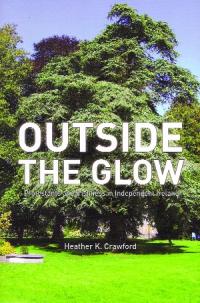Outside the glow: Protestants and Irishness in independent Ireland
Published in 20th-century / Contemporary History, Book Reviews, Issue 1 (Jan/Feb 2011), Reviews, Volume 19
Outside the glow: Protestants and Irishness in independent Ireland
Heather K. Crawford
(UCD Press, €28)
ISBN 9781906359447
Olivia Manning, the English-born and domiciled novelist, said that her Irish childhood produced ‘the usual Anglo-Irish sense of belonging nowhere’. While one of Heather K. Crawford’s Irish Protestant interviewees expresses similar sentiments, most counter the false idea that a Protestant cannot be fully Irish. Crawford suggests that guardrails placed around the concept of ‘Irishness’ kept Catholics in and Protestants out in post-independence Southern Ireland. The work is especially illuminating when Protestant interviewees think through being part of a faith community twenty times smaller than the majority’s version of Christianity.
Crawford’s interviewees, 64 Protestants and 36 Roman Catholics, are bearers of the detritus of history and of the long period of Roman Catholic dominance. Catholicism is seen as coterminous with a nationalism and Gaelicisation that it subsumes. In Crawford’s narrative, Protestants are cast adrift, are questioned and become self-questioning, but also querulously assertive, about their national identity. One of the effects of being a small minority is that most of the majority had little interaction with, and consequently little interest in, their Protestant neighbours. While Protestants are inevitably exposed to the dominant confessional culture, most Roman Catholics are equally inevitably ignorant of the lived experience of Irish Protestants. The Protestant community tended to fend for itself, a stance pre-dating the Irish state.
When it lost British state funding and was disestablished in 1871, though with a generous pay-off, the Church of Ireland had to adapt quickly to its new-found (unwelcome) autonomy. After 1890 the mainly Protestant landed élite, who owned most Irish land, saw its slow transfer over 30 years to those who in the main worked it. Then came an even more cataclysmic partition and independence in 1922. It was the culmination of 100 years of Protestant retreat. The departing British had governed for centuries on the basis that Protestants were loyal and had rewarded them accordingly. The mainly Catholic majority, formerly dispossessed and disenfranchised, now chose who ruled them, including the remaining somewhat apprehensive Protestants. Those who had been unionists, including the Church of Ireland that opposed Home Rule within the UK in 1912, made a public virtue of bowing to the inevitable. Fortuitously, the Civil War provided an agreeable victor. The Anglo-Irish Treaty settlement required swearing a parliamentary oath of fidelity to the British monarch and membership of the British Commonwealth. This provided the basis for a transition towards retaining Protestants’ old place in the new society. By the time the oath was ditched in the 1930s and a republic declared in 1948, deemed incompatible with Commonwealth membership, old colonial certainties had retreated.
The Church of Ireland benefited from a residue of economic and social privilege in that most of its members were relatively better off than the surrounding sea of Roman Catholics. Institutionally it did rather well, through the construction of a robust structure of governance and democratic accountability, a low-church theology, and substantial, increasingly state-supported, educational, health and welfare institutions. It positioned itself internally as ‘the Irish Church’ whose origins lay in Celtic Christianity.
Crawford, however, treats Protestants as marginal not merely numerically but also politically and psychologically. One reason is because institutionally Protestants set up successful parallel bodies in all walks of life that allowed a largely self-contained existence. Crawford suggests that it was a defence mechanism against cultural and confessional absorption. That may be so but it was also economically beneficial, as Crawford’s interviewees outline. Economic advantage was one of the reasons why Protestants did not complain much in the Catholic-dominated Republic. Crawford is right to point to Protestant poverty and to a distinct Dublin northside Protestant working class up to the end of the 1960s. She suggests Catholic absorption to account for its disappearance. Kurt Bowen’s Protestants in a Catholic state: Ireland’s privileged minority (1983) was probably correct, however, to pinpoint recruitment into middle-class occupations during the 1960s and ’70s by what Crawford’s interviewees call the ‘Protestant network’. (See my ‘Shorthand for Protestants’ in HI 17.5, Sept./Oct. 2009.)
Eventually, confessional control of identity was rejected by the Catholics the practice was designed to constrain, as Crawford’s Catholics make clear. Interactions with Irish identity are sometimes more complex, though, than Crawford’s always interesting analysis sometimes permits. In his memoir That could never be (2003), Revd Kevin Dalton, a rector to Dublin’s working-class Protestants, recounted talking on ‘Ireland Today’ to Irish-Americans in San Francisco in 1966. He spoke of a new national self-confidence, which he put down to the death of sixteen Irish soldiers on UN duty in the Congo, JFK’s visit in 1963, and ‘the recent commemoration of the 1916 Rising’. He believed that the Catholic Church was still far too dominant, though things were changing slowly for the better. Dalton was then asked to ‘admit’ that ‘Protestants . . . had been shown a great deal of tolerance by the nationalist majority’. He responded, ‘I refuse to thank anybody for tolerating me in my own country. I am every bit as Irish as anyone else in Ireland’. Dalton proceeded to reel off ‘all the great Irish leaders who were Protestants’. Having experienced a childhood in Protestant orphanages, Dalton’s is part of the diversity of Protestant and of Irish experience. Crawford’s interviewees indicate that identity is not something fixed; it is negotiated in the course of existence and an Irish experience that still bears the weight of history, and economy. HI
Niall Meehan is Head of the Faculty of Journalism and Media at Griffith College, Dublin.
















